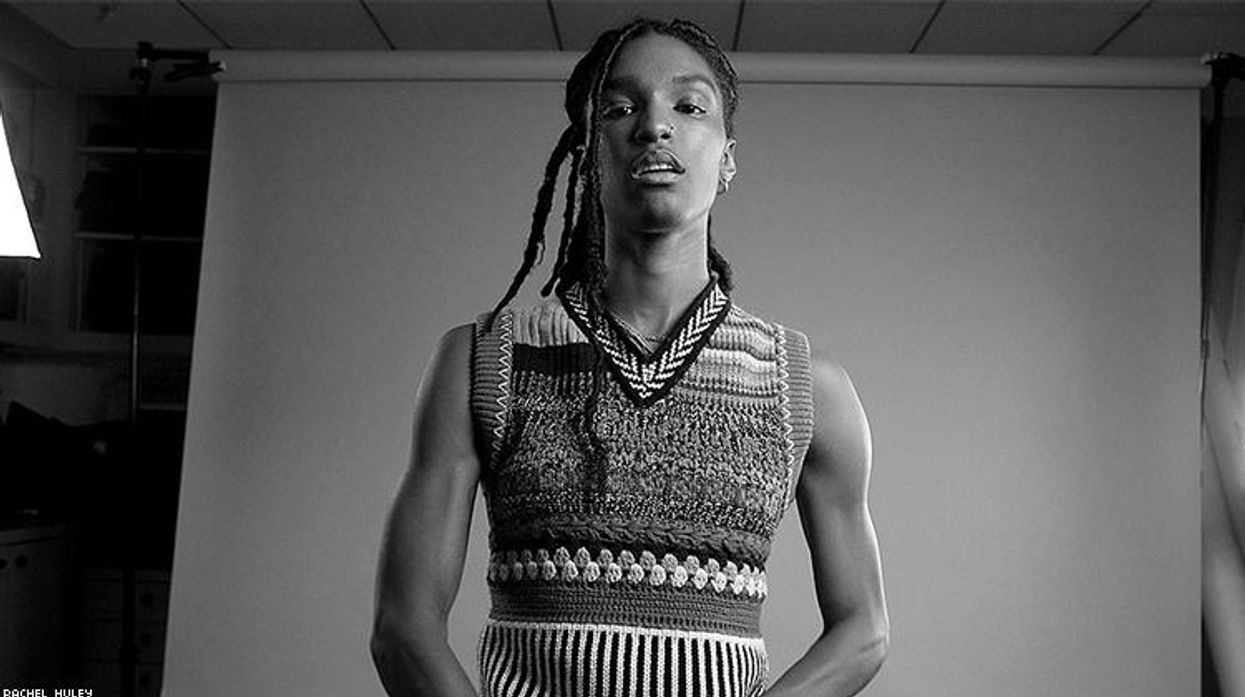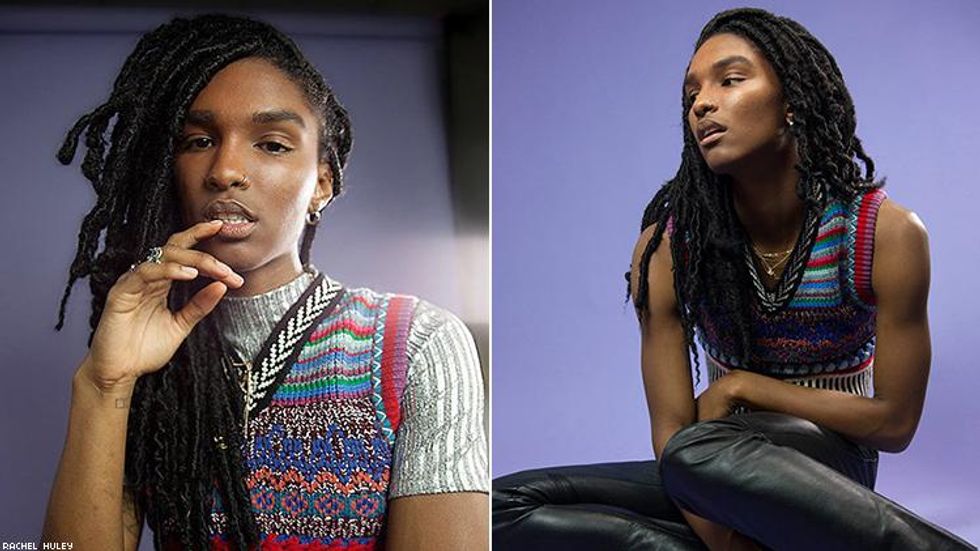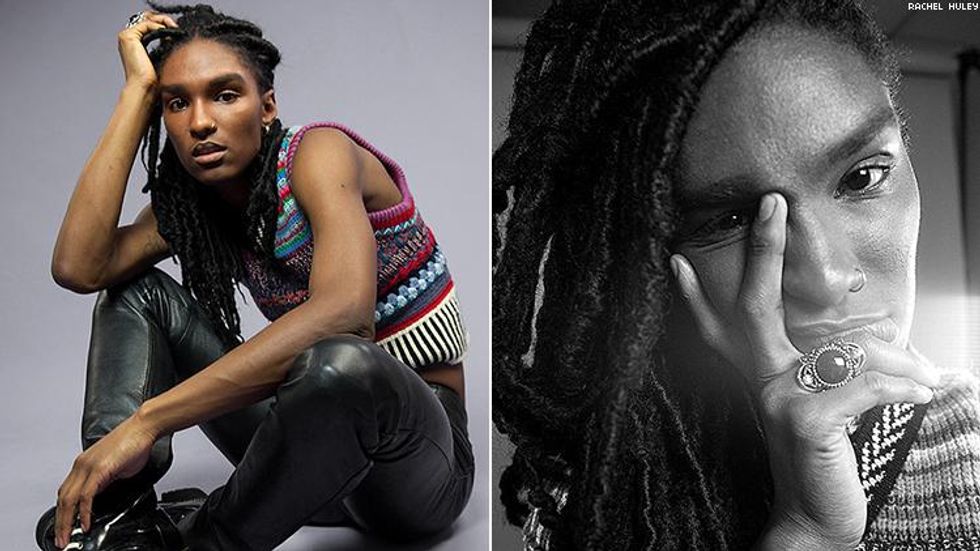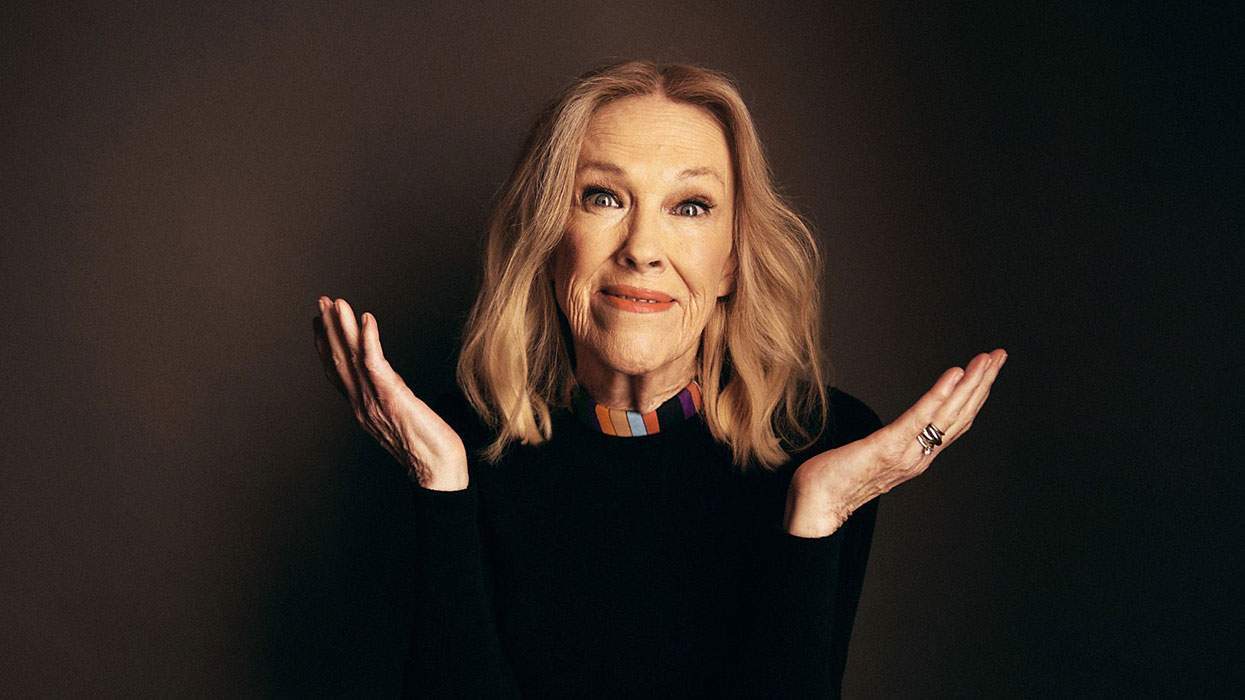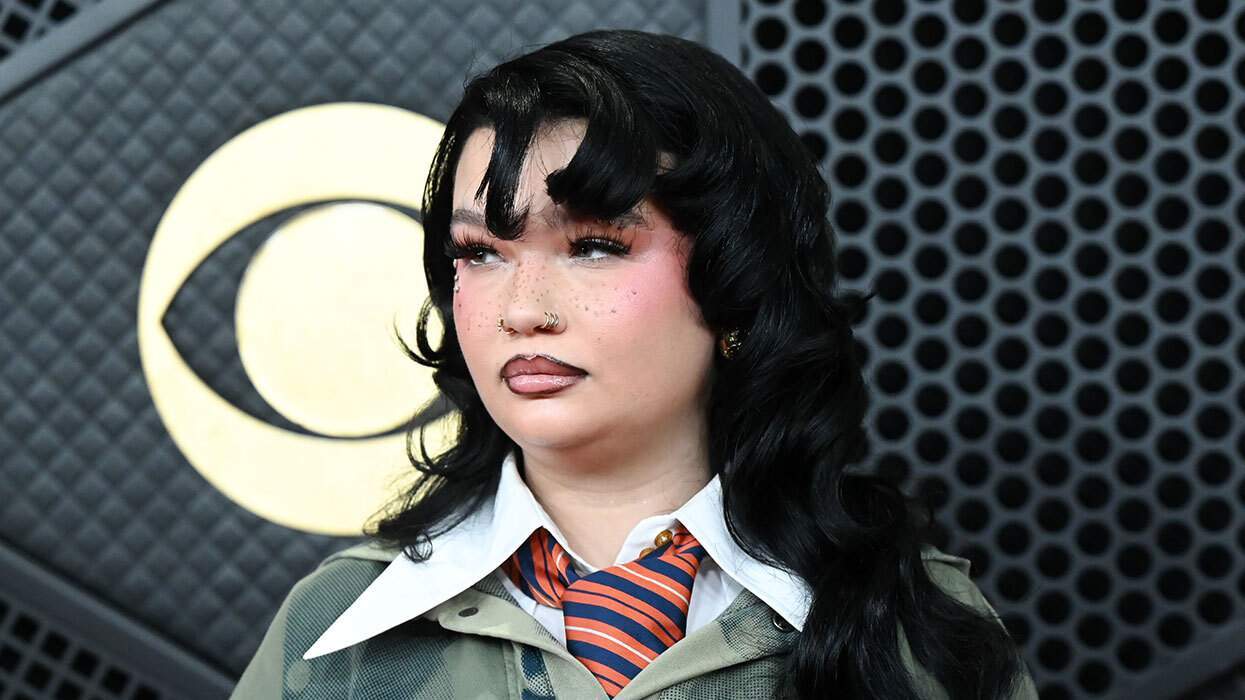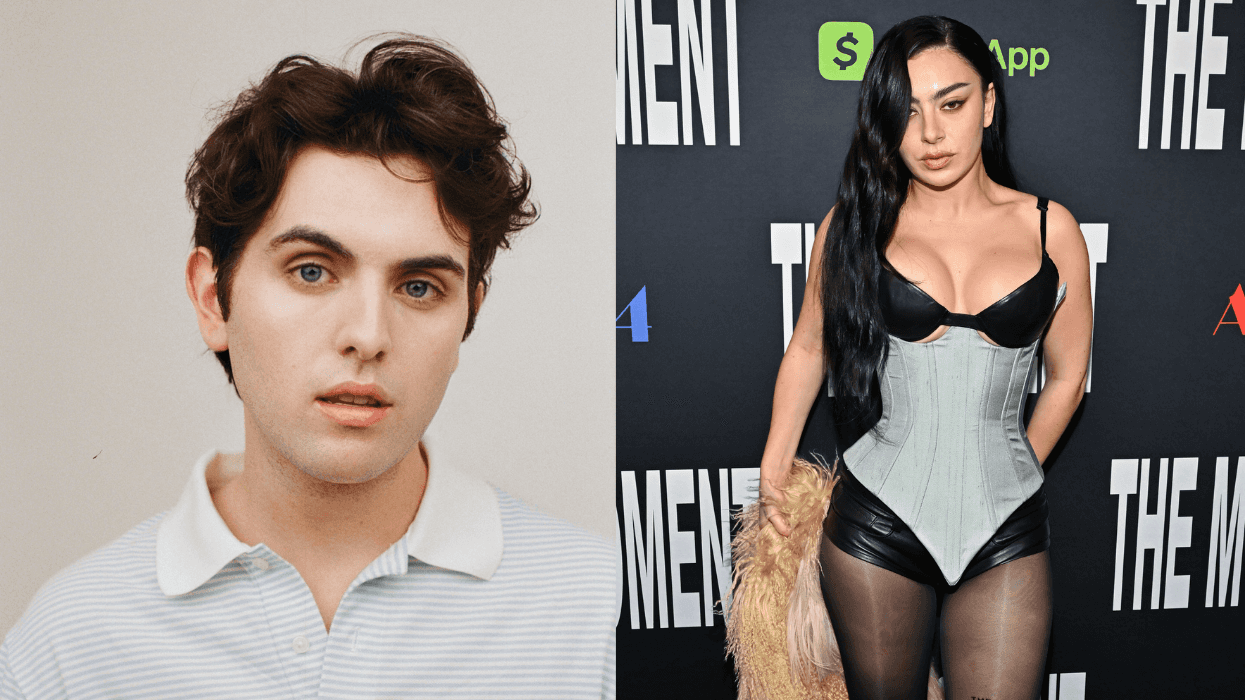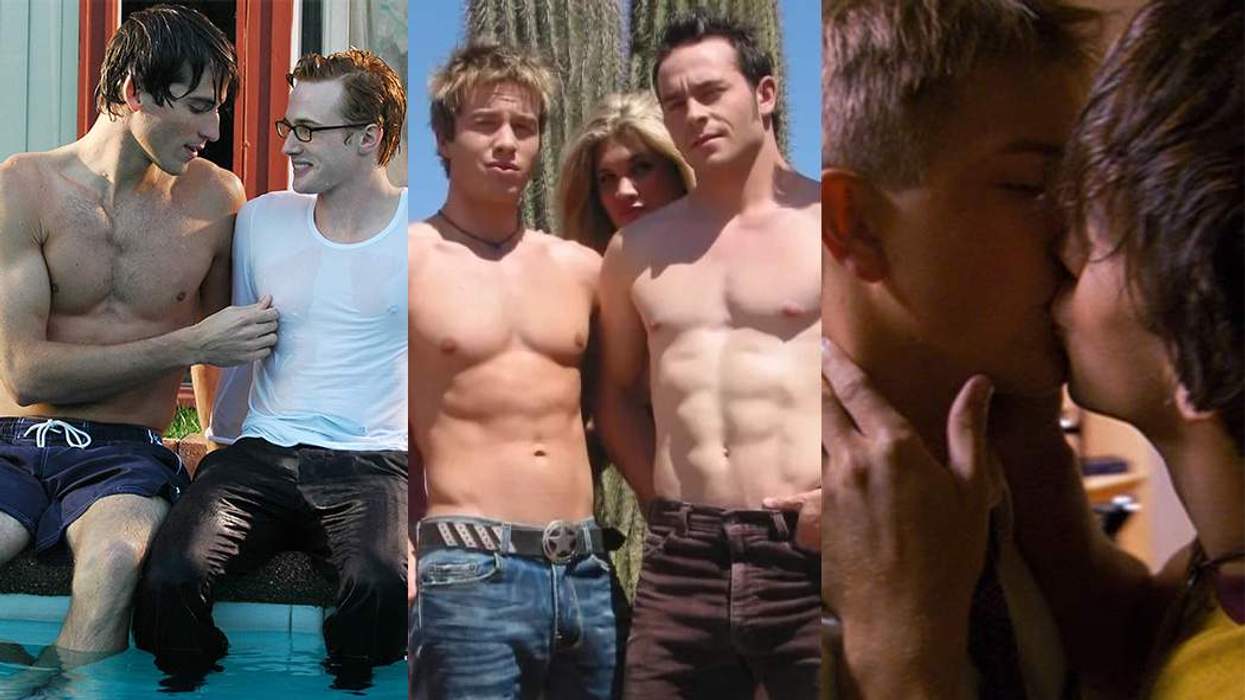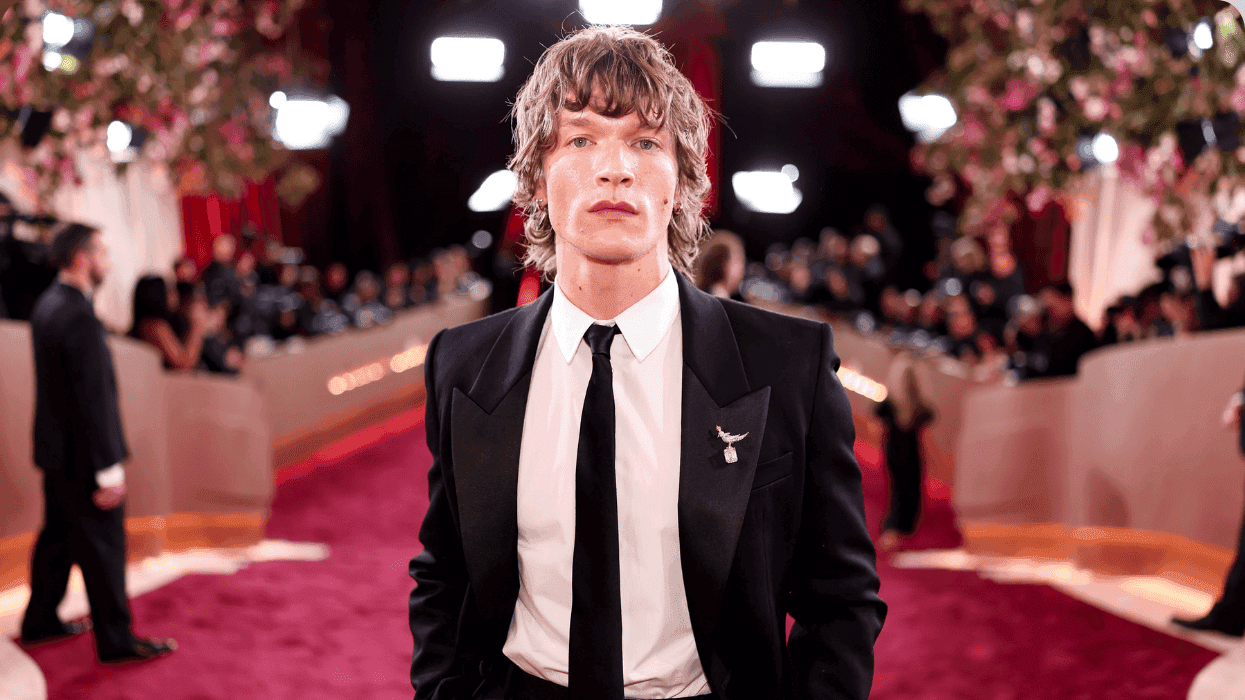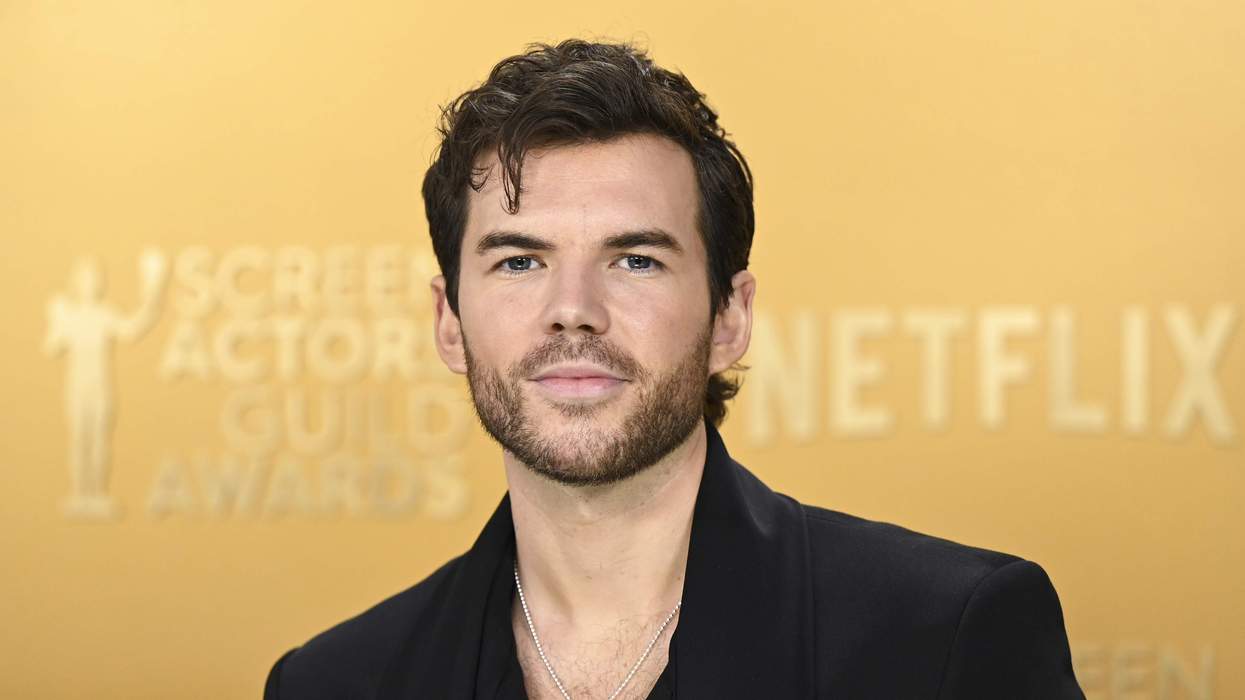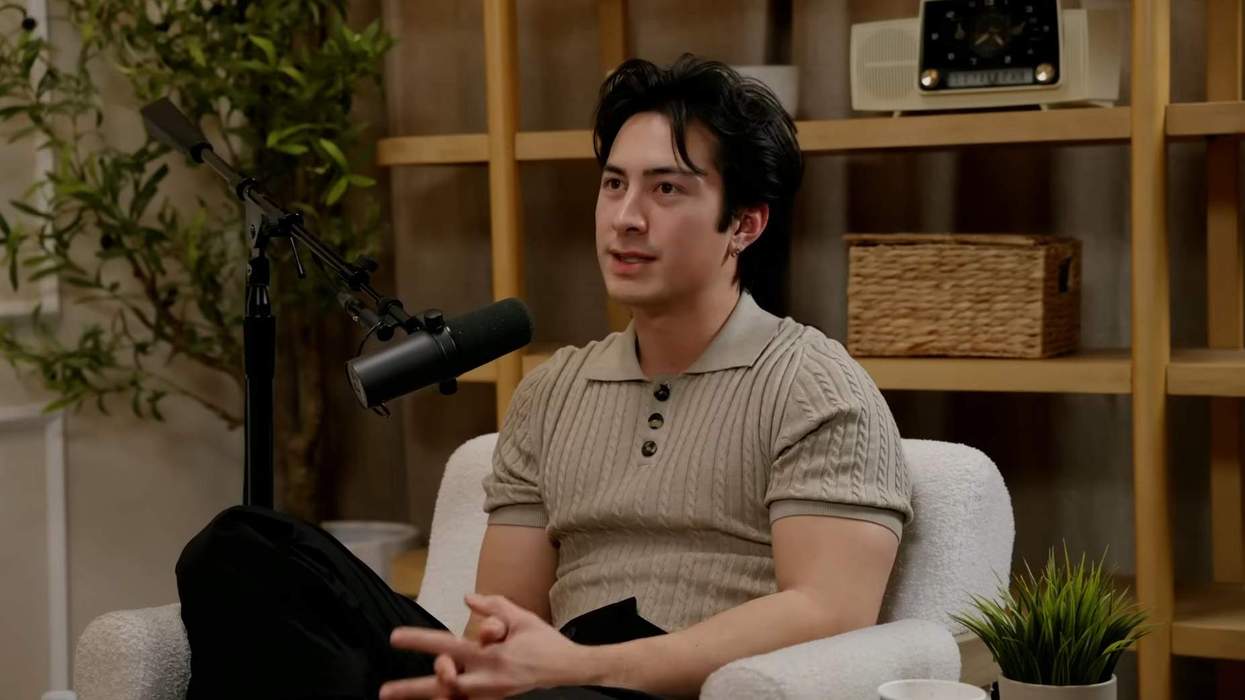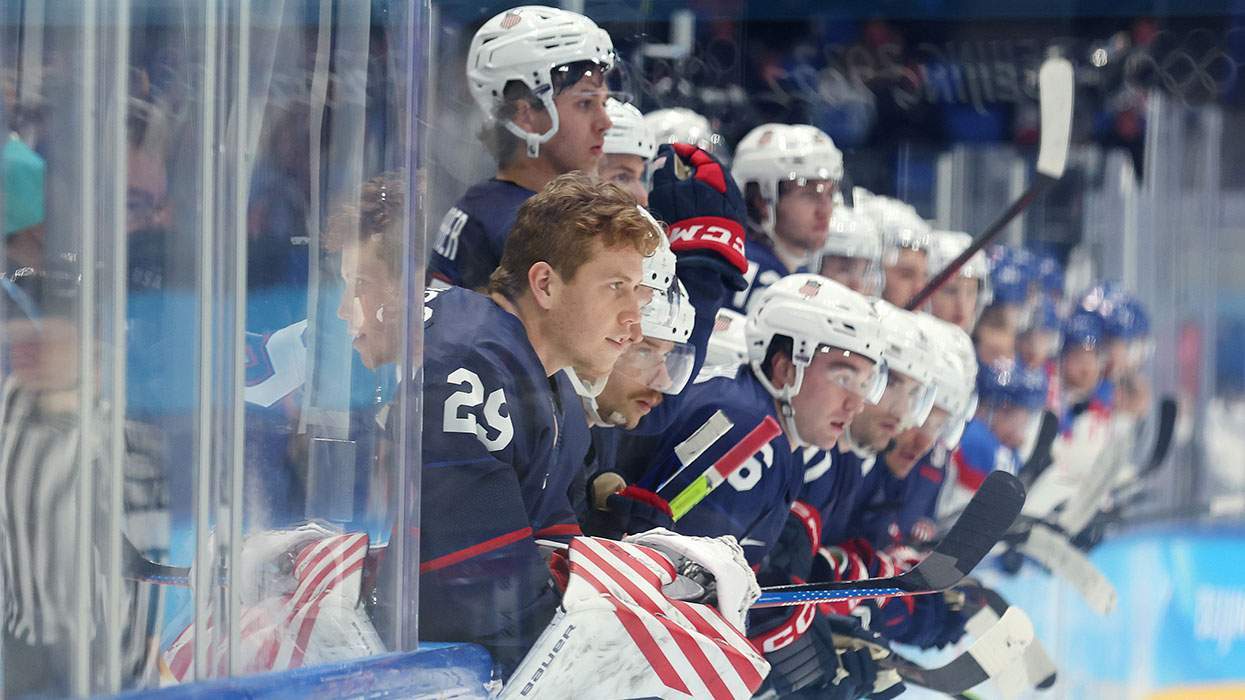Ari Fitz has pushed boundaries for diversity and representation in a number of different roles throughout her career -- modeling, MTV's The Real World, YouTube and documentary filmmaking, just to name a few. Now she's ready to tackle the world of video games, where stories by and about women are poised to be the industry's next leap forward.
"I really, really care about making sure that I am involved in projects that my 13-year-old self would have needed when she was growing up," she told OUT. "Right now I'm working on a comic book, I'm a filmmaker, I'm a YouTuber. I make a lot of content with that thought in mind."
By hosting a #GirlsGotGameNight with other creators and trying out the latest games by and for diverse women through Google Play, Fitz had the chance to embrace a genre that she couldn't quite connect with before. "One of the reasons I was so excited about being a part of this project was because it gave me a reason to focus on representation within a space I'm not as actively a part of," she said.
Though she grew up playing classic Nintendo 64 games with her brother, she often had trouble identifying with main characters that were largely white and male, while the rare female character often came across two-dimensional and secondary to the action.
"There was no one that I saw that looked like me; it never felt like games were marketed to me. When you don't see yourself in the world and media around you, you just start to think that you're not as important."
Fitz touched base with OUT just before her #GirlsGotGameNight and talked about her history with the genre, how she wants things to evolve and the new generation of diverse developers who are changing the game.
OUT: What drew you to gaming?
Fitz: My brother and I were really, really close growing up. I started to play games with him on Nintendo 64, like 007 or Mario Kart. I really just wanted to continue to bond with my brother, because that was something that was really important to him. I did get good at the different games, but he would always kick my ass because he spent more time on it. My relationship with it was really mediated through my brother, through another guy.
The thing is, I never put in as much time as he did, because I always thought that it wasn't for me. I thought, "He's the gamer, he gets to do that, that's not something that I'm..." Well, not allowed to do -- I was the kind of kid where, if you tell me I can't do something, then suddenly I'm a gamer now. But it felt like I just didn't belong there. Subconsciously I was like, "Okay cool, I'll just go and do my other things."
Did you have any favorite games or characters?
The games that drew me in were the old-school classics. I really liked Katana in Mortal Kombat -- she was one of the first characters where I would play against my brother, and I didn't feel like she was just included because we needed a girl in the game. She had real moves. I felt like I had an actual fighting chance to win.
Recently there have been a few female characters getting a new look and better storylines, like Lara Croft from Tomb Raider. Do you think there's a positive trend developing for women in gaming?
Really, what's happening is we're starting to get a lot more women in the room. I'm hosting this huge #GirlsGotGameNight and I'm inviting a few different friends to come over, and all we're doing is playing female-driven video games or mobile games. After just talking to a lot of my friends who are deeply, deeply rooted in gaming and fighting the good fight and being alone in a lot of these spaces, what's happening is they're taking up leadership roles and leadership positions at these gaming companies. I think the storylines are really starting to have a lot more nuance.
What new games with nuanced female characters have you been playing lately?
One game I'm really into right now is Republique. I started playing it a couple weeks ago, and I was like, dude, I care about her [central character Hope]. She's real. I think that's really cool, it's fun, it makes me always want to come back to it.
Who has inspired you in the gaming community?
Mostly my peers. My good friend Chablis Torrence is a game developer, and the stuff she's sending me that she's working on is like, whoa. She is someone that I think is really necessary -- a woman of color who is out here developing games that have female leads that are people of color, and really interesting storylines.
How would you like to see women's representation evolve in gaming?
I'm always touching on different media to figure out where I want to push representation, but the thing that's always within all of my work is storytelling. I think that games are so much more than games now -- they're entire experiences. We have writers who are developing elaborate storylines on the level of Sophia Coppola. We have richer writing, we have richer storylines, more complex characters. That's where I want to go deeper into. I think women within gaming can benefit from having more layered storylines.
At the end of the day, I hope there would be more women in the room. Just hearing from my friends who are actively trying to push the needle a little bit within these spaces -- and I don't even just mean developers, I mean having women in marketing leadership positions, having women involved in the writing room. If gaming as a whole better reflected the world around us, like if you go onto the subway or a train, if that space looked more like the spaces at these huge game developer companies I think we'd be a lot better and a lot stronger as a gaming industry.
Why is it important to have better representation in all different departments?
All it takes is altering the message a little bit to make it more inclusive. I think having women in the marketing for these games will significantly change the adoption, and through the adoption-changing, then the games will begin to alter and mend themselves to make sure they are including this significant new audience.
We need more than just female developers -- I think we need women who are writing, women in marketing, women in a leadership capacity in these different companies. Then there will be a huge trickle-down to where people like myself won't think, "I'm going to go against the current in order to play this game." It will just feel like, "Yeah, of course I'm going to play this."
What advice would you give to women looking to get into gaming?
You deserve to be there, and don't forget that. It's so easy to stomach the messages that we get and then have this weird chip on your shoulder when you have to walk into these spaces. But to be a woman in gaming right now is a huge asset. To be the first woman in marketing at the game company you're entering, or to be an indie female game developer, all of that is so necessary.
You deserve to be in the room. ... You have access to a wealth of insight, and you can actually help reach an audience that isn't being included and marketed to. That is actually incredibly lucrative. Let's really talk about it.
Any other messages you want to get out there?
One of the best ways to become a part of this space is to recognize that casual gaming is viable as well. To be a gamer is not to close off all your windows and never see the light of day or human beings ever again. To be in gaming is to recognize that everyone plays games differently. I hope that gaming will reflect that. ... I hope that we start to think about the different types of individuals, and how we all really want to play.



